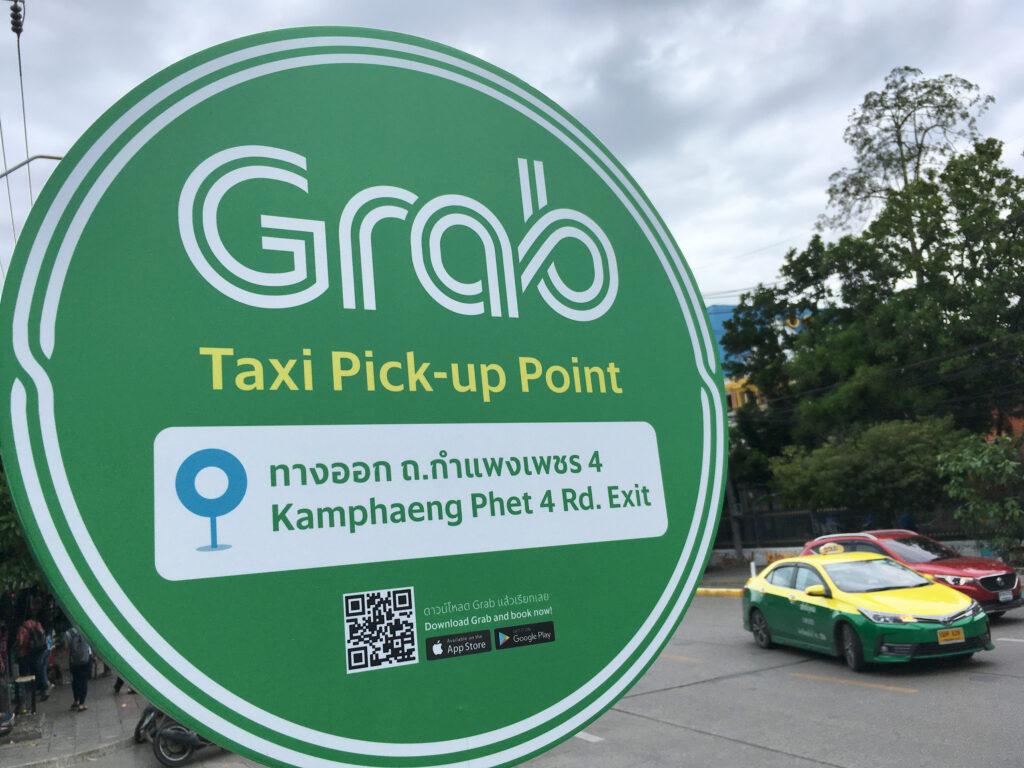What can we learn from local taxi startups who stood up against big competition?
Time and again, the transportation industry has had great examples where local entrepreneurs took a step towards their dreams and made a name for themselves in the highly competitive industry.
It is totally possible, as we always say, and these startups prove our point. From partnerships with local taxi operators to adopting a driver friendly culture, here’s how the local taxi businesses could do it.
Grab (Southeast Asia)
Grab, originally known as MyTeksi, started in Malaysia as a ride-hailing app. It was focused on providing safe and reliable transportation in Southeast Asia.
Grab gained recognition by adapting to the local market needs. It started services like GrabBike for motorcycle rides and GrabCar for private car hires.
The company expanded rapidly by partnering with local taxi operators. It helped them in overcoming overcome regulatory challenges and gain acceptance from both drivers and passengers.
Lesson learnt: Become one with your target audience, know their issues and then come out with a solution fit for them.

Didi Chuxing (China)
Didi Chuxing, often referred to as the “Uber of China,” emerged as a formidable competitor to Uber in the Chinese market.
Didi leveraged its understanding of the Chinese market. It developed tailored services like Didi Express, Didi Luxe, and Didi Hitch to cater to different customer segments.
The company also focused on strategic partnerships, such as teaming up with local taxi companies and investing in other ride-hailing platforms.
It helped expand its reach and establish a dominant position.
Lesson Learnt: Digging deep into your target segment and breaking them down into different sets of audiences. It can help you differentiate from your competitors that are serving all in the same plate.
Careem (Middle East)
Careem, based in Dubai, became one of the leading ride-hailing platforms in the Middle East.
Careem differentiated itself by offering localized services, including women-only cars and luxury car options. It knew to make a difference, it had to cater to diverse customer preferences.
The company actively engaged with local communities. It partnered with government entities and collaborated with local businesses to enhance its brand presence and establish trust.
Lesson Learnt: Dive into your community and see what you can do for them. Careem’s proposition for women only cars is deep rooted in the culture and that’s why it became a hit.

99 (Brazil)
99, formerly 99Taxis, started in Brazil as a local ride-hailing platform. Though it has now been acquired by Didi, a lot of lessons can be learnt as to how they made a mark in the beginning.
The company gained prominence by addressing safety concerns, implementing features such as in-app SOS alerts and driver identification verification.
99 also focused on serving less-connected areas and offering cash payment options to cater to a broader customer base.
Lesson Learnt: What are your customers like, what do they prefer and what are their biggest concerns? 99 knew that in Brazil, safety and digital payments are a major concern, so they became an alternative.
Easy Taxi (Latin America)
Easy Taxi, founded in Brazil, expanded across Latin America and became a prominent ride-hailing platform in the region.
The company gained traction by focusing on safety and reliability. It introduced features like real-time driver tracking, secure payment options, and customer support.
Easy Taxi capitalized on its local knowledge and understanding of the region’s transportation challenges to build a strong customer base.
Lesson Learnt: Technology plays a major role. Easy Taxi capitalised on that and made a name for themselves.
Also Read
Achieve Great Success in Taxi Business with Jugnoo Online Cab Booking Software
Go-Jek (Indonesia)
Go-Jek, originally a motorcycle taxi service, evolved into a super app offering a wide range of services beyond transportation.
Go-Jek started in Indonesia and quickly became a dominant player. It offered affordable and convenient transportation options, along with services like food delivery, package delivery, and mobile payments.
Lesson Learnt: The company’s integration of multiple services within a single app allowed them to become an everyday essential for users.
Yandex.Taxi (Russia)
Yandex.Taxi, a subsidiary of the Russian search engine Yandex, emerged as a leading ride-hailing platform in Russia and neighboring countries.
Leveraging the trust and recognition of the Yandex brand, Yandex.Taxi gained a competitive edge in the market.
The company also introduced innovative features like in-app fare estimates, cashless payments. It also introduced an advanced driver rating system to improve the overall user experience.
Lesson Learnt: Yandex utilised the brand value and name.

Ingogo (Australia)
Ingogo, an Australian taxi booking app, differentiated itself by offering fixed fares and upfront pricing, providing transparency to passengers.
Ingogo’s app also allowed users to book taxis in advance, helping them plan their trips more efficiently.
Lesson Learnt: The company’s focus on improving the traditional taxi experience through technology-driven solutions resonated with Australian customers.
Lyft (USA)
Lyft is a ride-hailing app that was founded in 2012 in the United States. Lyft has been successful by offering a variety of services, including taxi rides, private cars, and even shared rides.
It has also been praised for its commitment to safety and its focus on customer service. Lyft could compete against Uber because of it’s driver-friendly culture and focus on niche markets.
Though things are not looking good for them at the moment, but it once succeeded in getting at Uber succesfully.
Lesson Learnt: Focus on drivers and customers and you will get there.
Also Read
How Taxi Live Africa Uses JugnooTaxi To Drive Its Revenue To Maximum?
Bolt (Indonesia)
Bolt is a ride-hailing app that was founded in 2013 in Estonia. It is now available in over 40 countries and has over 50 million users.
Bolt has been successful by offering a variety of services, including taxi rides, private cars, and even scooters. It has also been praised for its commitment to safety and its focus on affordability.
Conclusion
These examples demonstrate how these local taxi startups succeeded by understanding the unique needs of their respective markets, tailoring their services accordingly, forging strategic partnerships, and actively engaging with local communities.
By focusing on local customer preferences and addressing specific challenges, these startups were able to establish themselves as significant players in their regions.
If you too are thinking of starting a local taxi business, Jugnoo has the right technology and guidance for you.




